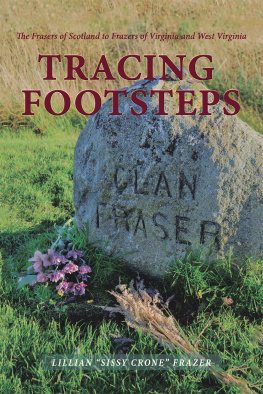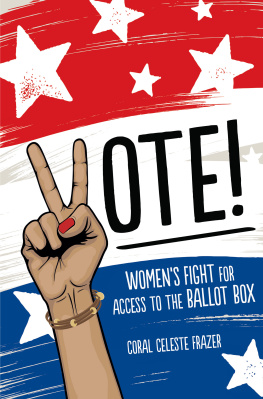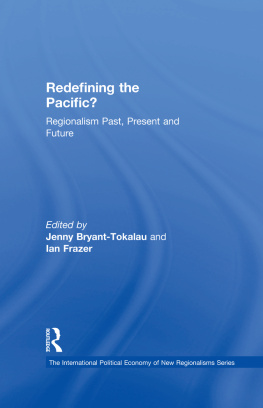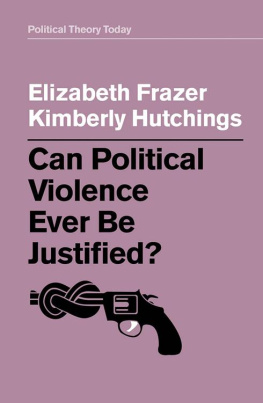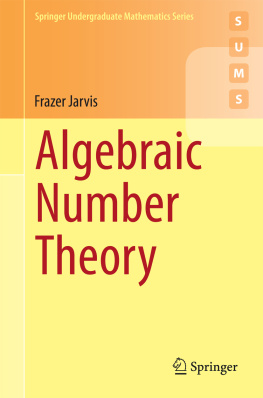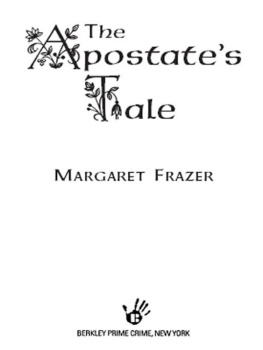Frazer Elizabeth - Violence and Political Theory
Here you can read online Frazer Elizabeth - Violence and Political Theory full text of the book (entire story) in english for free. Download pdf and epub, get meaning, cover and reviews about this ebook. year: 2020, publisher: Wiley, genre: Politics. Description of the work, (preface) as well as reviews are available. Best literature library LitArk.com created for fans of good reading and offers a wide selection of genres:
Romance novel
Science fiction
Adventure
Detective
Science
History
Home and family
Prose
Art
Politics
Computer
Non-fiction
Religion
Business
Children
Humor
Choose a favorite category and find really read worthwhile books. Enjoy immersion in the world of imagination, feel the emotions of the characters or learn something new for yourself, make an fascinating discovery.

- Book:Violence and Political Theory
- Author:
- Publisher:Wiley
- Genre:
- Year:2020
- Rating:3 / 5
- Favourites:Add to favourites
- Your mark:
- 60
- 1
- 2
- 3
- 4
- 5
Violence and Political Theory: summary, description and annotation
We offer to read an annotation, description, summary or preface (depends on what the author of the book "Violence and Political Theory" wrote himself). If you haven't found the necessary information about the book — write in the comments, we will try to find it.
Violence and Political Theory — read online for free the complete book (whole text) full work
Below is the text of the book, divided by pages. System saving the place of the last page read, allows you to conveniently read the book "Violence and Political Theory" online for free, without having to search again every time where you left off. Put a bookmark, and you can go to the page where you finished reading at any time.
Font size:
Interval:
Bookmark:
Mary Hawkesworth Gender and Political Theory
Brian Orend, War and Political Theory
Elizabeth Frazer & Kimberly Hutchings, Violence and Political Theory
Elizabeth Frazer
Kimberly Hutchings
polity
Copyright Elizabeth Frazer and Kimberly Hutchings 2020
The right of Elizabeth Frazer and Kimberly Hutchings to be identified as Authors of this Work has been asserted in accordance with the UK Copyright, Designs and Patents Act 1988.
First published in 2020 by Polity Press
Polity Press
65 Bridge Street
Cambridge CB2 1UR, UK
Polity Press
101 Station Landing
Suite 300
Medford, MA 02155, USA
All rights reserved. Except for the quotation of short passages for the purpose of criticism and review, no part of this publication may be reproduced, stored in a retrieval system or transmitted, in any form or by any means, electronic, mechanical, photocopying, recording or otherwise, without the prior permission of the publisher.
ISBN-13: 978-1-5095-3673-3
A catalogue record for this book is available from the British Library.
Library of Congress Cataloging-in-Publication Data Names: Frazer, Elizabeth, author. | Hutchings, Kimberly, 1960- author.
Title: Violence and political theory / Elizabeth Frazer, Kimberly Hutchings.
Description: Cambridge, UK ; Medford, MA : Polity, 2020. | Series: And political theory | Includes bibliographical references and index. | Summary: The first book to accessibly outline the major debates on violence in political theory-- Provided by publisher.
Identifiers: LCCN 2019041764 (print) | LCCN 2019041765 (ebook) | ISBN 9781509536719 (hardback) | ISBN 9781509536726 (paperback) | ISBN 9781509536733 (epub)
Subjects: LCSH: Political violence. | Violence--Political aspects.
Classification: LCC JC328.6 .F733 2020 (print) | LCC JC328.6 (ebook) | DDC 303.601--dc23
LC record available at https://lccn.loc.gov/2019041764
LC ebook record available at https://lccn.loc.gov/2019041765
The publisher has used its best endeavours to ensure that the URLs for external websites referred to in this book are correct and active at the time of going to press. However, the publisher has no responsibility for the websites and can make no guarantee that a site will remain live or that the content is or will remain appropriate.
Every effort has been made to trace all copyright holders, but if any have been overlooked the publisher will be pleased to include any necessary credits in any subsequent reprint or edition.
For further information on Polity, visit our website: politybooks.com
The groups and individuals who have given us support and advice on our work on the political theory of violence over the past fifteen years are too numerous to mention. We have benefitted from stimulating discussion and challenges from seminar and conference participants in the United Kingdom, the United States and Europe since 2005. We are particularly indebted to Lucy Abbott, Chetan Bhatt, Vittorio Buffachi, Brad Evans, Chris Finlay, Michael Freeden, Nick Hewlett, Aggie Hirst, Stathis Kalyvas, Karuna Mantena, Jon Leader Maynard, Kate Millar, Andrea Ruggieri and Mathias Thaler, and to the three anonymous reviewers of the book manuscript, for detailed comments and suggestions. Sasha Aristotle helped us with citations and word processing; and we are particularly grateful for the support and work of Julia Davies and George Owers at Polity Press.
Some of the analysis in the chapters either revises or follows from our jointly authored publications:
The Politics Violence Frontier, forthcoming. Journal of Political Ideologies.
The Feminist Politics of Naming Violence. Feminist Theory, Online First, July 2019: https://doi.org/10.1177/1464700119859759 .
Can Political Violence Ever Be Justified? Cambridge: Polity, 2019.
Anarchist Ambivalence: Politics and Violence in the Thought of Bakunin, Tolstoy and Kropotkin. European Journal of Political Theory 18(2): 25980, 2019.
Drawing the Line between Violence and Non-Violence in Ghandi and Fanon: Deceits and Conceits, in Masquerades of War, edited by Christine Sylvester, 4367. Abingdon: Routledge, 2015.
Feminism and the Critique of Violence: Negotiating Feminist Political Agency. Journal of Political Ideologies 19(2): 14363, 2014.
Revisiting Ruddick: Feminism, Pacifism and Non-Violence. Journal of International Political Theory 10(1): 10924, 2014.
Remnants and Revenants: Politcs and Violence in the Work of Giorgio Agamben and Jacques Derrida. British Journal of Politics and International Relations 13(2): 12744, 2011.
Virtuous Violence and the Politics of Statecraft in Machiavelli, Clausewitz and Weber. Political Studies 59(1): 5673, 2011.
Avowing Violence: Foucault and Derrida on Politics, Discourse and Meaning. Philosophy and Social Criticism 37(1): 323, 2011.
Politics, Violence and Revolutionary Virtue: Reflections on Locke and Sorel. In Contesting the Legacy of 89: Revolutionary Narratives and Non-Violence in European Political Theory, edited by Christopher Finlay and Stefan Auer, special issue of Thesis 11: A Journal of Critical Theory and Historical Sociology 97: 4562, 2009.
On Politics and Violence: Arendt contra Fanon. Contemporary Political Theory 7(1): 90108, 2008.
Argument and Rhetoric in the Justification of Political Violence. European Journal of Political Theory 6(2): 18099, 2007.
Reflections on Politics and Violence
It seems obvious that violence is intimately related to, but can also be sharply distinguished from, politics. The immanence of violence in politics is apparent from states monopolisations (or attempted monopolisations) of armed force, police authority, legal punishment and social coercion, as well as from the ever present option of violence for revolutionary purposes. The distinction between violence and politics is apparent in the difference between waging armed conflict and articulating political values, persuading others of those values, or forming, legislating and implementing policies in social movement, party, parliamentary or bureaucratic contexts. If we probe this commonsense view, however, we find that the story is more complicated than it appears.
Within political theory, there is a variety of ways in which violence and politics are identified with, and distinguished from, each other. Each of these ways has different implications for the meanings of violence and politics as well as for the justificatory discourses that surround those concepts. This book analyses and evaluates how political theorists produce, negotiate and settle the conceptual relationship between violence and politics. It argues that such settlements are inherently unstable and full of tensions, and that we should abandon the political theorists quest for a determinate definition, explanation or legitimation of political violence. Instead, a genuinely political theory of violence needs to start from the politics inherent in practices and conditions of violence.
The concept of violence and the concept of politics are vague and contested (Bufacchi, 2005; Finlay, 2006, 2017; iek, 2008). As we will see violence, politics and their counterparts have diverse reference and scope across the languages in which the authors we study think and write. Our aim, though, is to follow the concepts through the arguments in which they are embedded. We analyse how diverse distinctions between what is political and what is violent are produced showing that justification is always much more difficult than production. Both concepts, violence and politics, are theory-laden. In the case of politics there are those for whom politics refers to a more or less venal or vicious mode of competing for, gaining, and holding on to the power to govern a power centred on factions, persuasion, and securing control of governing forces and institutions. Alternatively, there are those for whom politics refers to the particular capacity that can be generated when people act in concert to set up or to challenge governing officers and institutions. In our view, the concept of politics incorporates both of the above and more. It is not confined to competition for state rule. Changes in society or in culture, when pursued or argued about publicly, are political. So, too, are ideological positions that challenge or affirm power privilege, whether carried out by state or private actors.
Font size:
Interval:
Bookmark:
Similar books «Violence and Political Theory»
Look at similar books to Violence and Political Theory. We have selected literature similar in name and meaning in the hope of providing readers with more options to find new, interesting, not yet read works.
Discussion, reviews of the book Violence and Political Theory and just readers' own opinions. Leave your comments, write what you think about the work, its meaning or the main characters. Specify what exactly you liked and what you didn't like, and why you think so.

